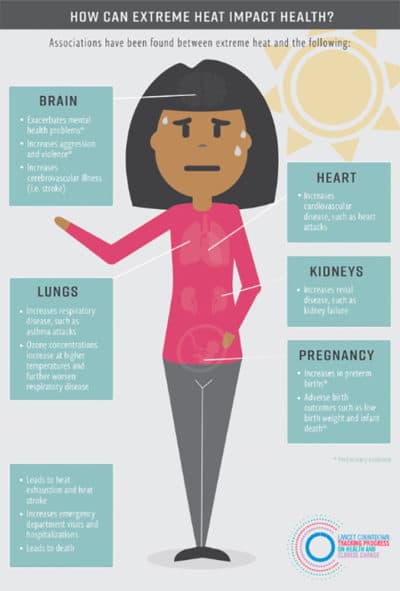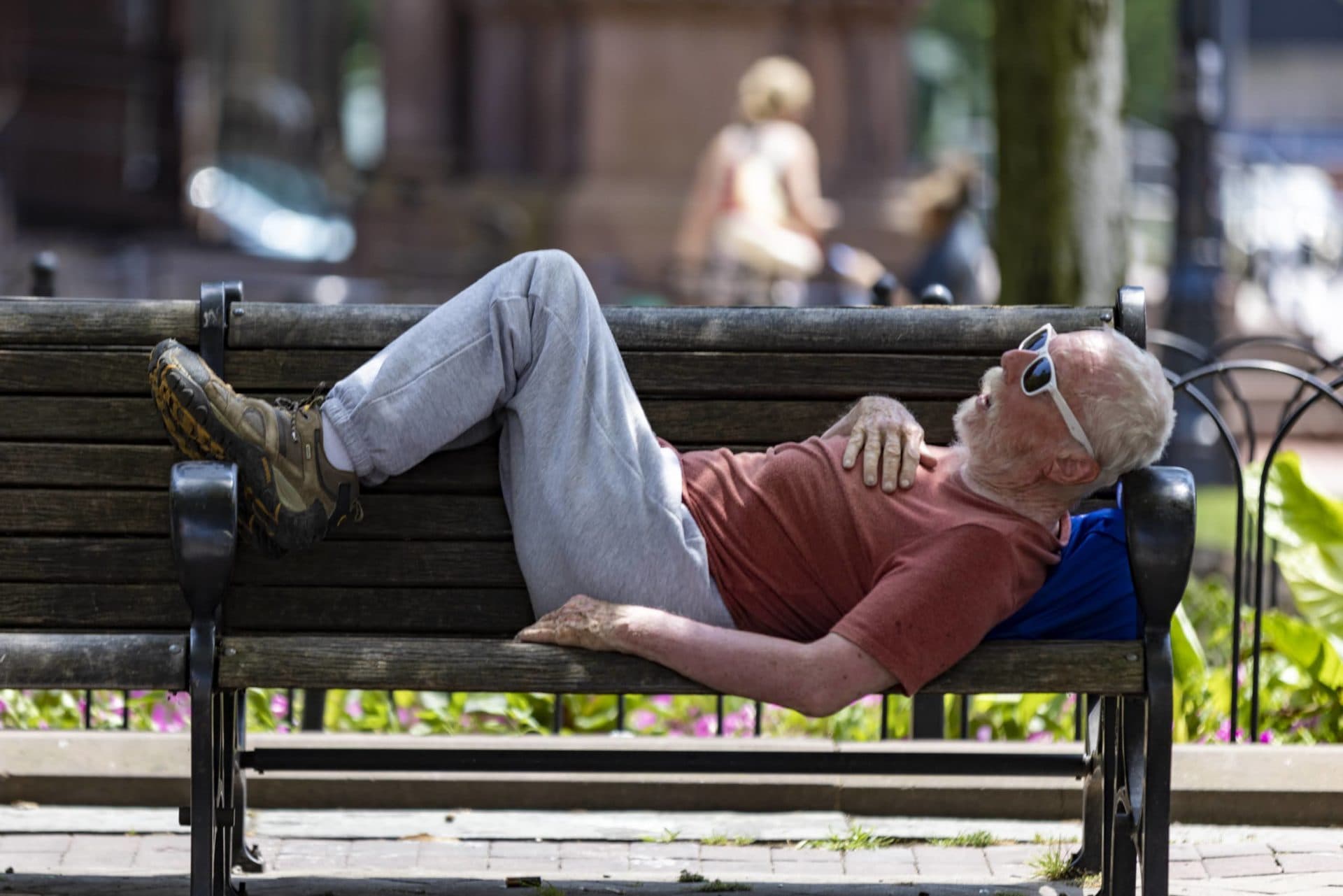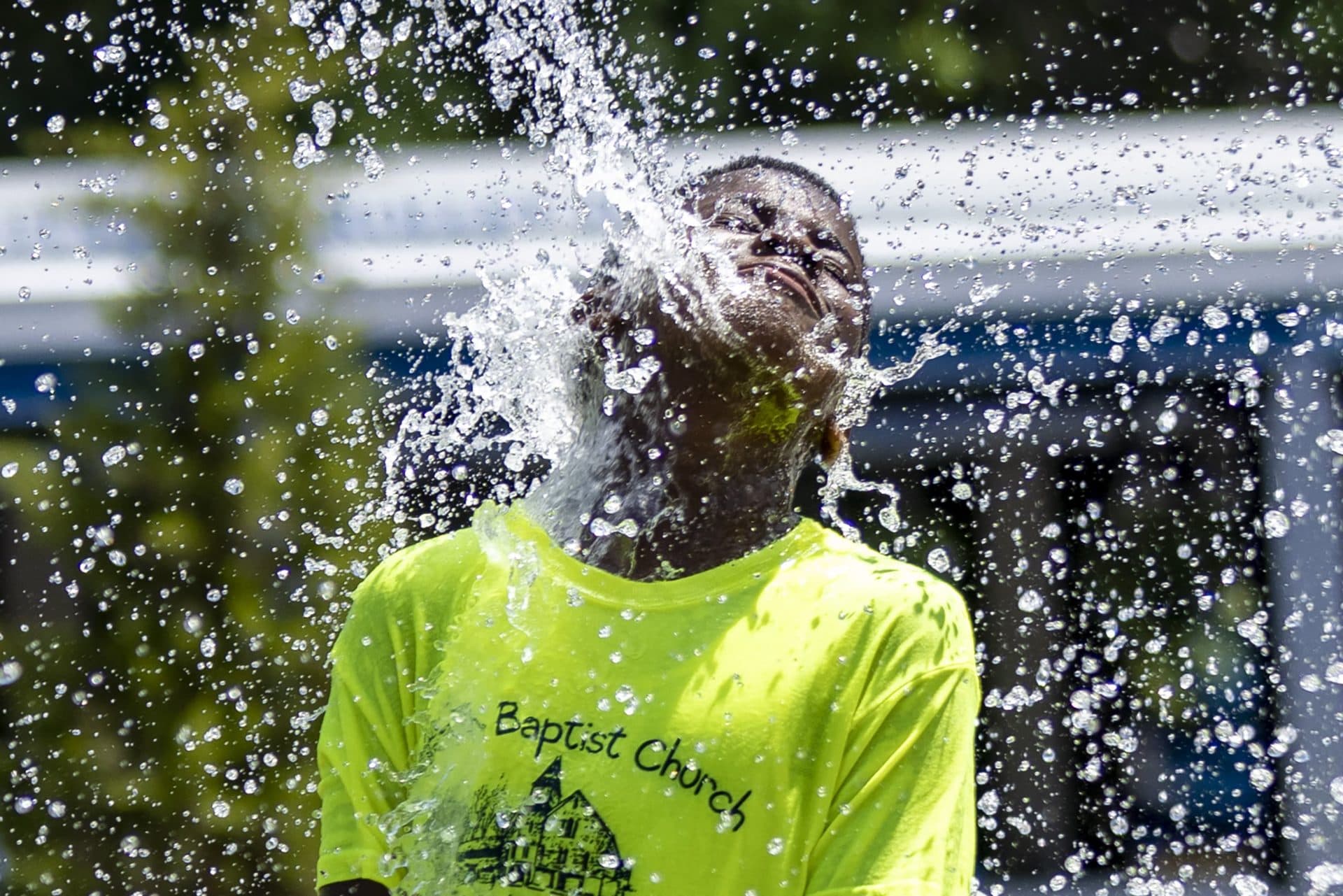Advertisement
Beyond sunburns: How hot weather can hurt you

Traducido en español por El Planeta Media.
Massachusetts, like much of the East Coast, is sweltering under a heat wave. And with these stretches of hot days come the usual urgent warnings about heat-related illness. I’ve lived here for years, and try to heed these warnings, but I’ve always wondered: how exactly can heat hurt our bodies?
So on a hot day in July, I ask Dr. Hillary Irons to meet me for a conversation about what happens inside our bodies as temperatures rise. Irons, an emergency room physician with training in wilderness medicine, agrees to describe the cascade of events heat can trigger so that someone who hasn’t studied biology since high school (me) will understand.
It’s 85 degrees and muggy when we rendezvous at a park in Needham. A heat wave in this area is three consecutive days above 90 degrees, but Irons says problems can occur well before it gets that hot.
“You can get heat-related illness, especially in a home without air conditioning or an enclosed vehicle, even when temperatures are in the 70s,” says Irons, who practices at UMass Memorial Medical Center.

The cascade of physiological changes heat can trigger begins with a sensor in the brain that reacts when your temperature begins to rise.
“The heart picks up and you breathe a little bit faster,” she says. “Your body sends a lot of blood to the skin, where it can cause cooling.”
And you start to sweat. Relief comes as sweat evaporates from your skin, transferring heat from your body into the air. It happens more quickly if there’s a breeze. It may not happen at all on humid days when there’s already a lot of moisture in the air.
"The effects of heat are compounded when you have humidity on top of that,” Irons says.
Luckily, there’s a breeze moving the sweat off my skin as Irons and I settle onto a bench in the shade. But my sandals feel tight. Turns out that’s from all the blood my body is pumping to my skin and extremities.
“You can have some swelling, particularly in the hands and the feet, what we call heat edema,” Irons says.
Advertisement
It could be a sign I need more water. Irons suggests following two rules to make sure I’m properly hydrated.
“If you are feeling thirsty, you [may] already [be] behind,” says Irons. “And watch the color of your urine. You want it to be a very pale yellow color and if you're darker than that, you need to drink more fluids.”
Dehydration can trigger a series of problems, often starting with heat cramps. They occur, typically in the calves and thighs, if muscles don’t have the right balance of salts and fluids. And cramps may be a symptom of heat exhaustion as patients progress.

With heat exhaustion, people “can feel very weak, but they're still conscious and talking to you,” says Irons. “It's a continuum from there into heat stroke.”
By the time heat stroke sets in, Irons says patients have typically stopped sweating, though this is not always the case. The brain doesn’t have any tools left to cool the body. Patients are likely to be confused, vomiting or unconscious.
“That is a medical emergency and it progresses to coma and death, if not treated,” Irons says.
Some of the remedies Irons uses in the hospital to treat overheated patients are pretty low tech, things you might try at home before you start to feel drained. She sprays people with cool water and turns a fan on them or puts the patient in chilled, preferably moving water.
Heat can damage individual organs. Our kidneys don’t work well if we’re dehydrated. And Irons says they can get clogged with proteins that muscles release when overheated. This leads to a condition called rhabdomyolysis that can cause kidney failure.
Heat can provoke inflammation in the lungs and an asthma attack. Research shows mental health emergencies are more frequent during hot weather, although the physiology isn’t completely clear. Public health leaders warn about the increased risk of heart attacks during heat waves because heat increases blood pressure. And Irons says people with diabetes are at greater risk of dehydration and may notice their body’s insulin needs change.
“Anytime, we get away from what our normal physiology is used to, it can increase the risk of all kinds of chronic illnesses becoming worse,” she says.

Many people with chronic diseases are on medications that limit the body’s ability to retain fluids or respond to heat. Researchers are just beginning to consider adjusting prescriptions as summers get longer and hotter with climate change.
Risks related to heat vary by age, says Irons, looking across the park.
“The teenagers that are playing field hockey, they're young and healthy,” says Irons, “and have greater reserves than the elderly gentleman walking on the track or the small child, who looks about 3 years old over there.”
Shade covers much of the playground where the toddler digs in the dirt. Needham has a lot of greenspace, which likely helps the town stay a bit cooler than more urban areas. But Irons says location can be deceptive because you’re at risk for a heat related problem anytime you exceed your body’s ability to compensate.
That can be anywhere. It can be a very leafy environment in the wilderness. It can be on the streets in Boston,” she says.

Editor's Note: This post has been updated to clarify signals of heat stroke and dehydration.
This article was originally published on July 22, 2022.
This segment aired on July 22, 2022.
